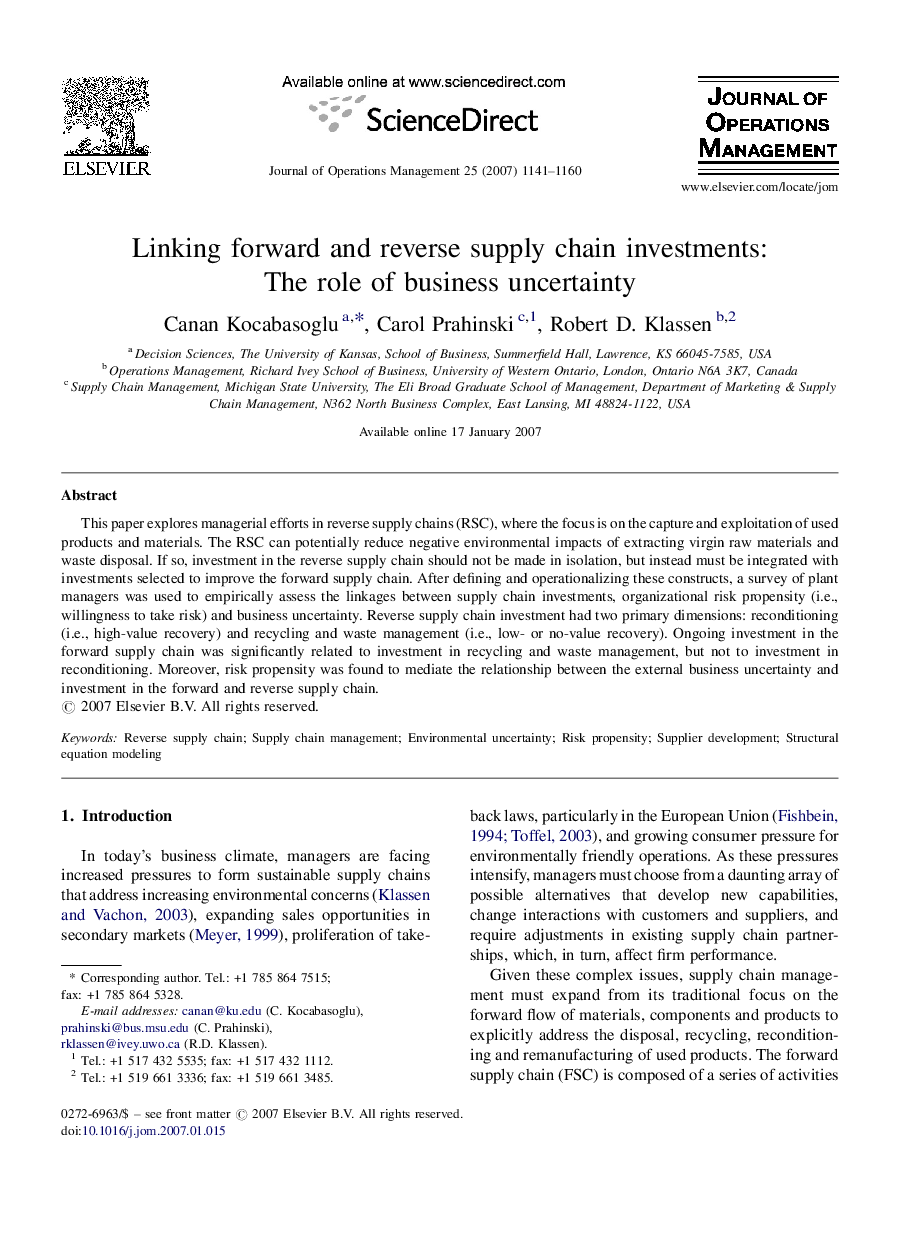| Article ID | Journal | Published Year | Pages | File Type |
|---|---|---|---|---|
| 1032013 | Journal of Operations Management | 2007 | 20 Pages |
This paper explores managerial efforts in reverse supply chains (RSC), where the focus is on the capture and exploitation of used products and materials. The RSC can potentially reduce negative environmental impacts of extracting virgin raw materials and waste disposal. If so, investment in the reverse supply chain should not be made in isolation, but instead must be integrated with investments selected to improve the forward supply chain. After defining and operationalizing these constructs, a survey of plant managers was used to empirically assess the linkages between supply chain investments, organizational risk propensity (i.e., willingness to take risk) and business uncertainty. Reverse supply chain investment had two primary dimensions: reconditioning (i.e., high-value recovery) and recycling and waste management (i.e., low- or no-value recovery). Ongoing investment in the forward supply chain was significantly related to investment in recycling and waste management, but not to investment in reconditioning. Moreover, risk propensity was found to mediate the relationship between the external business uncertainty and investment in the forward and reverse supply chain.
